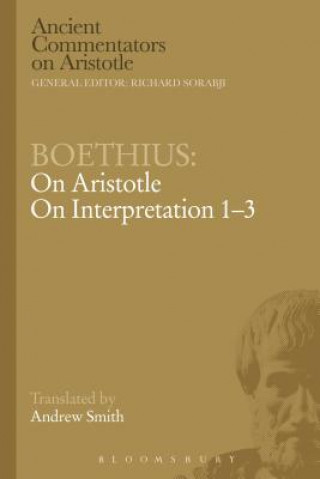
Kod: 02357260
Boethius: On Aristotle On Interpretation 1-3
Autor Boethius
Boethius (c.480-c.525) wrote his highly influential second commentary on Aristotle's On Interpretation in Latin, but using the style of the Greek commentaries on Aristotle. It was part of his project to bring knowledge of Plato an ... więcej
- Język:
 Angielski
Angielski - Oprawa: Miękka
- Liczba stron: 176
Wydawca: Bloomsbury Publishing, 2014
- Więcej informacji o książce

Zobacz książki o podobnej tematyce
-

Adventures of a Different Sort
65.24 zł -

Derivatives
247.98 zł -4 % -

Beliefs in Action
191.70 zł -

Answer Key and Audio Script for Jarvis/Lebredo/Mena-Ayll n's Hola, amigos!, 8th
105.71 zł -

Introducing Management in a Global Context
222.91 zł -

Diet, Hormones and Cancer
160.38 zł
Podaruj tę książkę jeszcze dziś
- Zamów książkę i wybierz "Wyślij jako prezent".
- Natychmiast wyślemy Ci bon podarunkowy, który możesz przekazać adresatowi prezentu.
- Książka zostanie wysłana do adresata, a Ty o nic nie musisz się martwić.
Więcej informacji o Boethius: On Aristotle On Interpretation 1-3
Za ten zakup dostaniesz 177 punkty
 Opis
Opis
Boethius (c.480-c.525) wrote his highly influential second commentary on Aristotle's On Interpretation in Latin, but using the style of the Greek commentaries on Aristotle. It was part of his project to bring knowledge of Plato and Aristotle to the Latin-speaking world of his fellow Christians. The project was cruelly interrupted by his execution at the age of about 45, leaving the Latin world under-informed about Greek Philosophy for 700 years. Boethius reveals to us how On Interpretation was understood not only by himself, but also by some of the best Greek interpreters, especially Alexander and Porphyry. Alexander had insisted that its subject was composite thoughts, not composite sentences nor composite things - it is thoughts that are primarily true or false. Although Aristotle's first six chapters define name, verb, sentence, statement, affirmation and negation, Porphyry had claimed that Aristotelians believe in three types of name and verb, written, spoken and mental, in other words a language of the mind. Boethius discusses individuality and ascribes to Aristotle a view that each individual is distinguished by having a composite quality that is not merely unshared, but unshareable. Boethius also discusses why we can still say that the dead Homer is a poet, despite having forbidden us to say that the dead Socrates is either sick or well. But Boethius' most famous contribution is his interpretation of Aristotle's discussion of the threat of that tomorrow's events, for example a sea battle, will have been irrevocable 10,000 years ago, if it was true 10,000 years ago that there would be a sea battle on that day. In Boethius' later Consolation of Philosophy, written in prison awaiting execution, he offered a seminal conception of eternity to solve the related problem of future events being irrevocable because of God's foreknowledge of them. Boethius' influential commentary was part of his ideal of bringing Plato and Aristotle to the Latin-speaking world. Throughout the Latin Middle Ages, it remained the standard introduction to On Interpretation. This volume contains the first English translation of Boethius' commentary, as well as a detailed introduction, notes and bibliography.
 Szczegóły książki
Szczegóły książki
Kategoria Książki po angielsku Humanities Philosophy History of Western philosophy
303.16 zł
- Pełny tytuł: Boethius: On Aristotle On Interpretation 1-3
- Autor: Boethius
- Język:
 Angielski
Angielski - Oprawa: Miękka
- Liczba stron: 176
- EAN: 9781472557896
- ISBN: 1472557891
- ID: 02357260
- Wydawca: Bloomsbury Publishing
- Waga: 264 g
- Wymiary: 237 × 162 × 10 mm
- Data wydania: 10. April 2014
Ulubione w innej kategorii
-

Meditations
45.30 zł -14 % -

The Myth of Sisyphus
29.69 zł -3 % -

Why I Am so Clever
15.60 zł -21 % -

Meditations
70.17 zł -14 % -

Republic
57.68 zł -5 % -

Beyond Good and Evil
47.31 zł -23 % -

Gay Science
65.54 zł -4 % -

Aphorisms on Love and Hate
15.29 zł -23 % -

Beyond Good & Evil
70.17 zł -11 % -

Meditations on First Philosophy
47.31 zł -23 % -
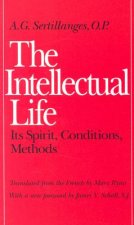
Intellectual Life
97.45 zł -5 % -

Socrates' Defence
15.29 zł -23 % -
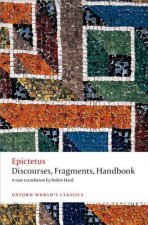
Discourses, Fragments, Handbook
52.35 zł -15 % -

Ride the Tiger
105.71 zł -4 % -

Thus Spoke Zarathustra
48.92 zł -14 % -

Fear and Trembling
47.31 zł -23 % -

Birth of Tragedy
15.29 zł -23 % -
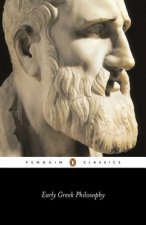
Early Greek Philosophy
61.11 zł -23 % -

Groundwork for the Metaphysics of Morals
47.31 zł -23 % -
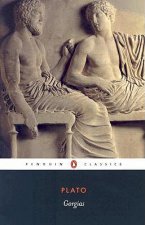
Gorgias
45.60 zł -5 % -

Brief History of Analytic Philosophy - From Russell to Rawls
163.81 zł -3 % -
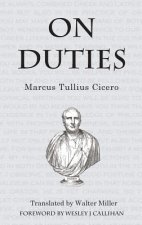
On Duties
57.48 zł -5 % -

Discourses and Selected Writings
52.35 zł -15 % -

Nicomachean Ethics
24.56 zł -23 % -

Nausea
47.31 zł -23 % -

Letters from a Stoic
47.31 zł -23 % -

Meditations
101.78 zł -4 % -

Simulacra and Simulation
86.08 zł -12 % -

Phenomenology of Spirit
93.53 zł -5 % -

Twilight of the Idols with The Antichrist and Ecce Homo
24.56 zł -23 % -

On Liberty, Utilitarianism and Other Essays
38.25 zł -23 % -

On the Suffering of the World
25.06 zł -26 % -

Human Condition
102.79 zł -6 % -

On the Shortness of Life
38.25 zł -14 % -

Existentialism Is a Humanism
45.50 zł -4 % -

Think
51.84 zł -23 % -

Guide to the Good Life
74.30 zł -9 % -
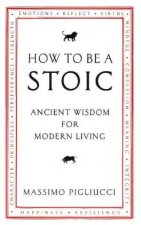
How To Be A Stoic
75.50 zł -14 % -

The Symposium
45.60 zł -5 % -

Human, All Too Human & Beyond Good and Evil
24.56 zł -23 % -

At The Existentialist Cafe
53.15 zł -3 % -

Undiscovered Self
121.52 zł -

Passions of the Soul and Other Late Philosophical Writings
51.84 zł -23 % -

The Trouble With Being Born
65.54 zł -4 % -

Leviathan
24.56 zł -23 % -
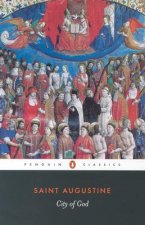
City of God
81.44 zł -11 % -

Ecce Homo
42.68 zł -23 % -
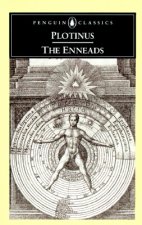
Enneads
70.37 zł -23 % -

On Friendship
33.62 zł -23 %
zadowolonych klientów
Od roku 2008 obsłużyliśmy wielu miłośników książek, ale dla nas każdy był tym wyjątkowym.
Copyright! ©2008-24 libristo.pl Wszelkie prawa zastrzeżonePrywatnieCookies



 21 milionów książek
21 milionów książek Dostawa 10.99 zł
Dostawa 10.99 zł (32) 444 93 66 (8-15.30h)
(32) 444 93 66 (8-15.30h)